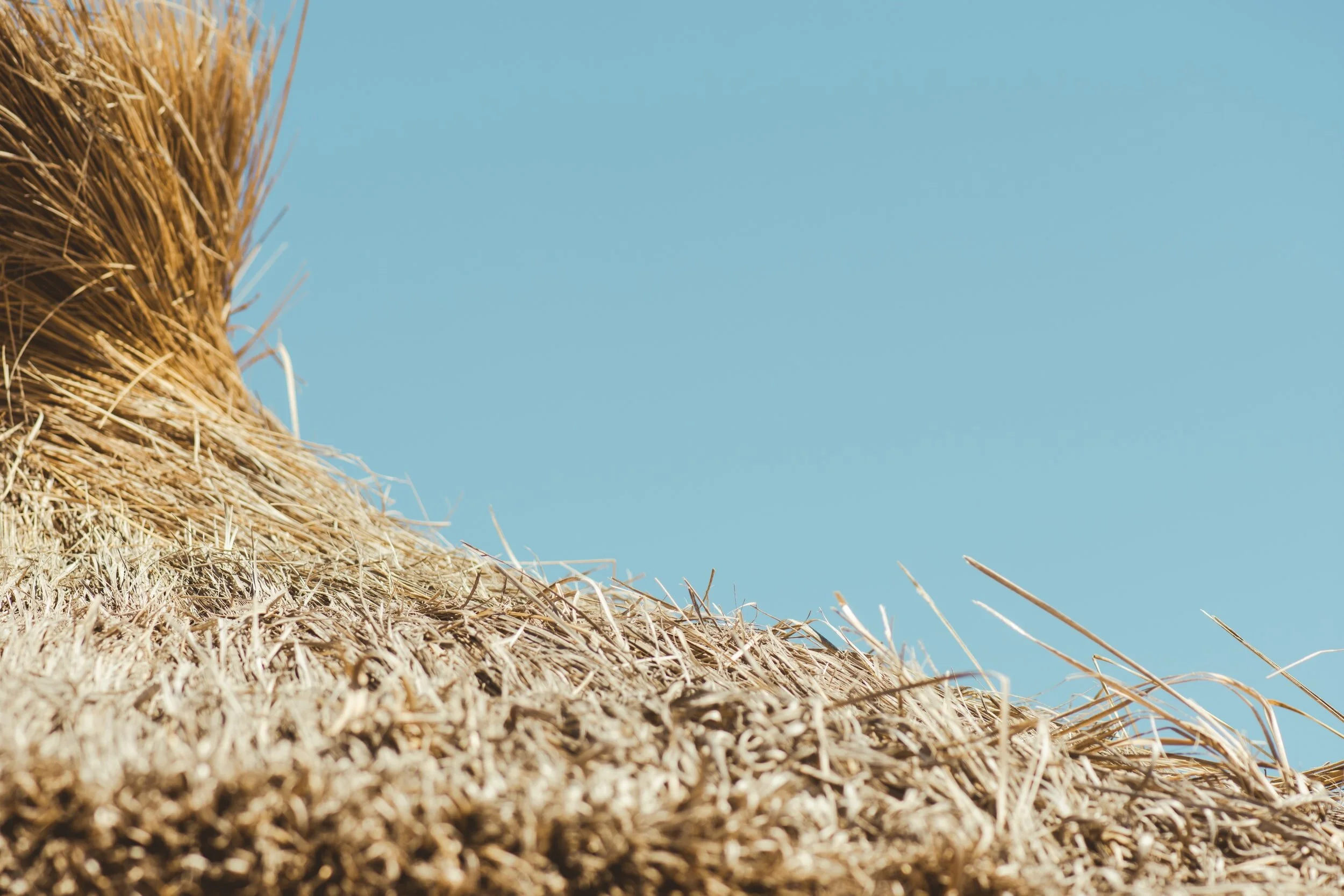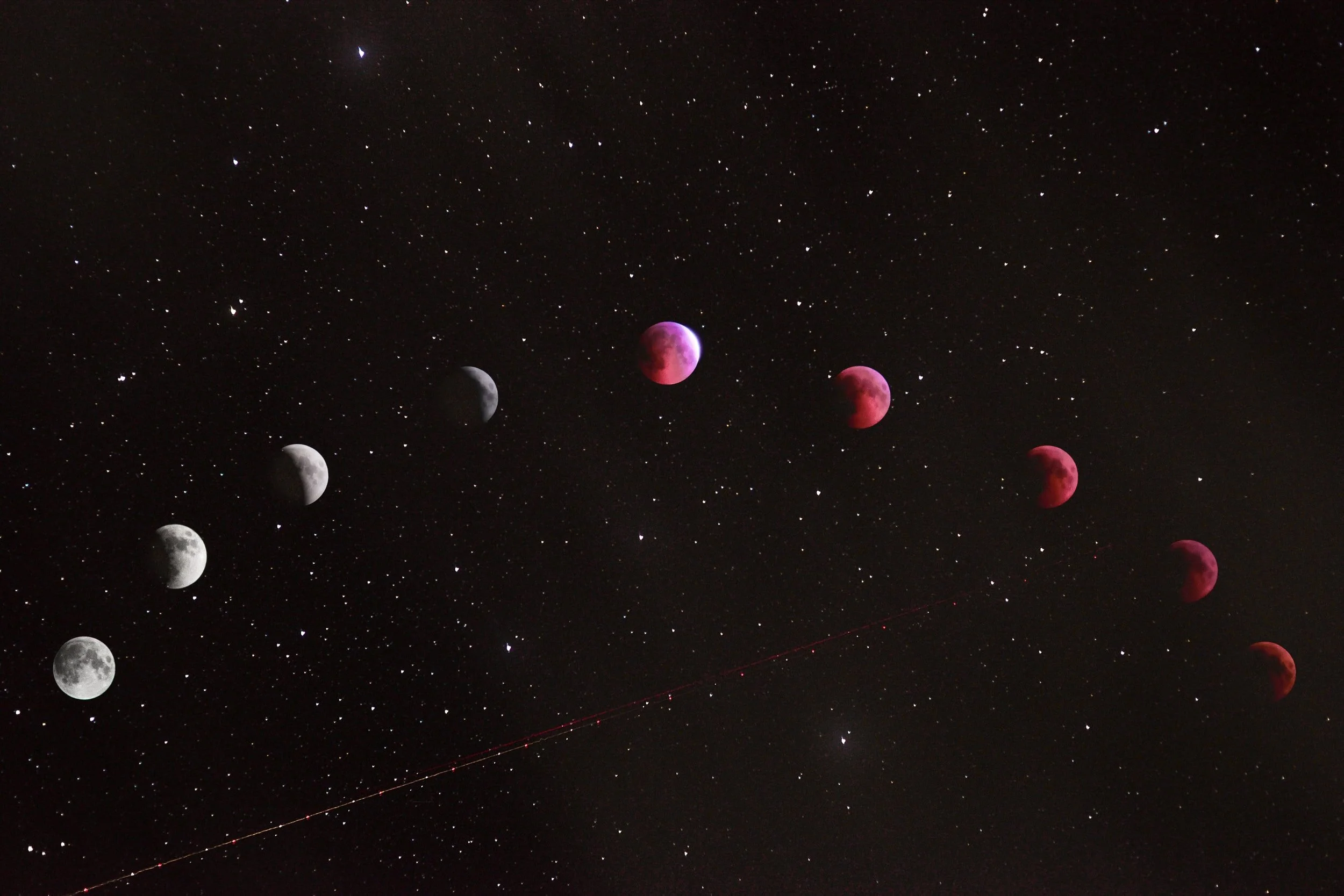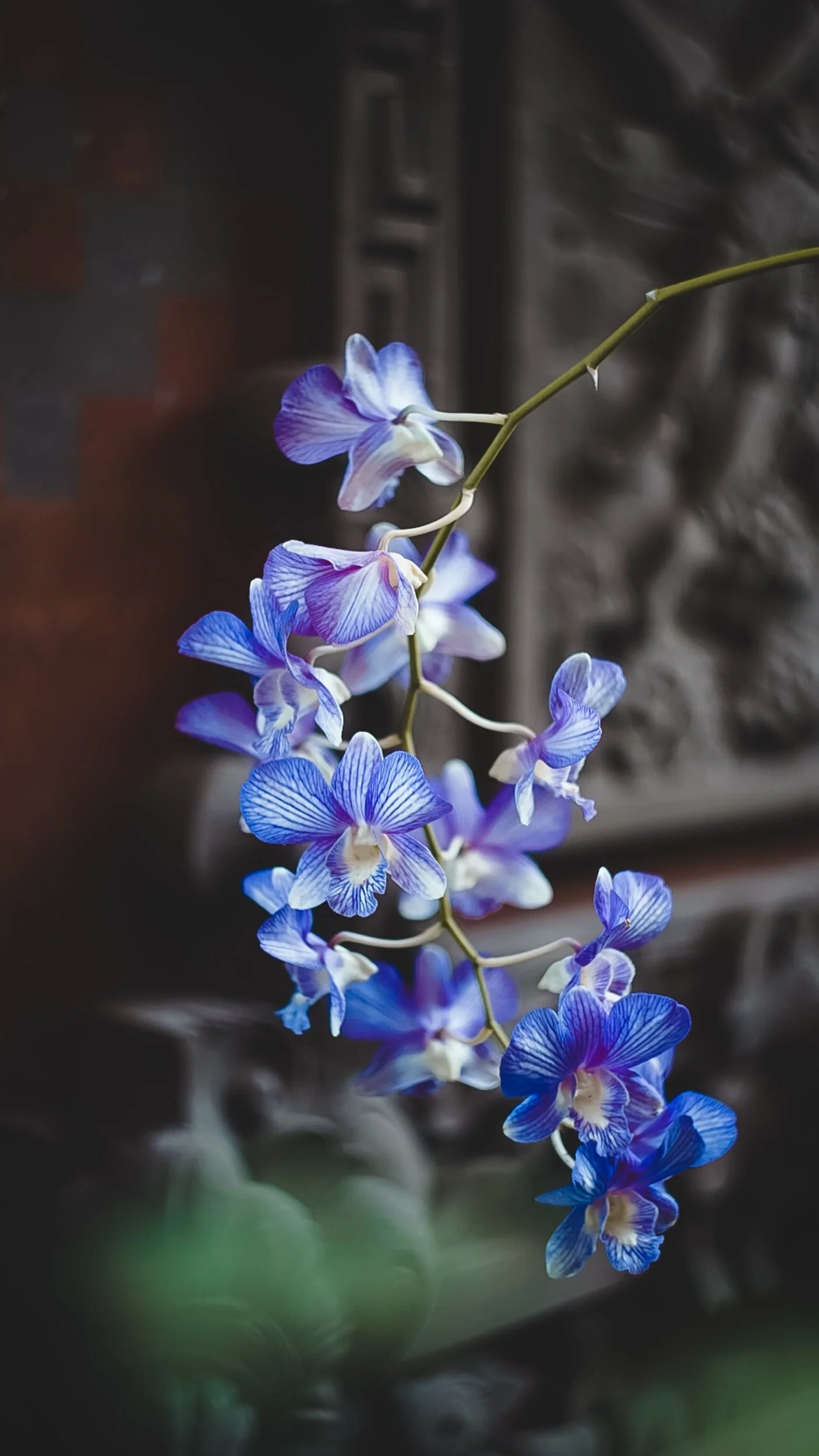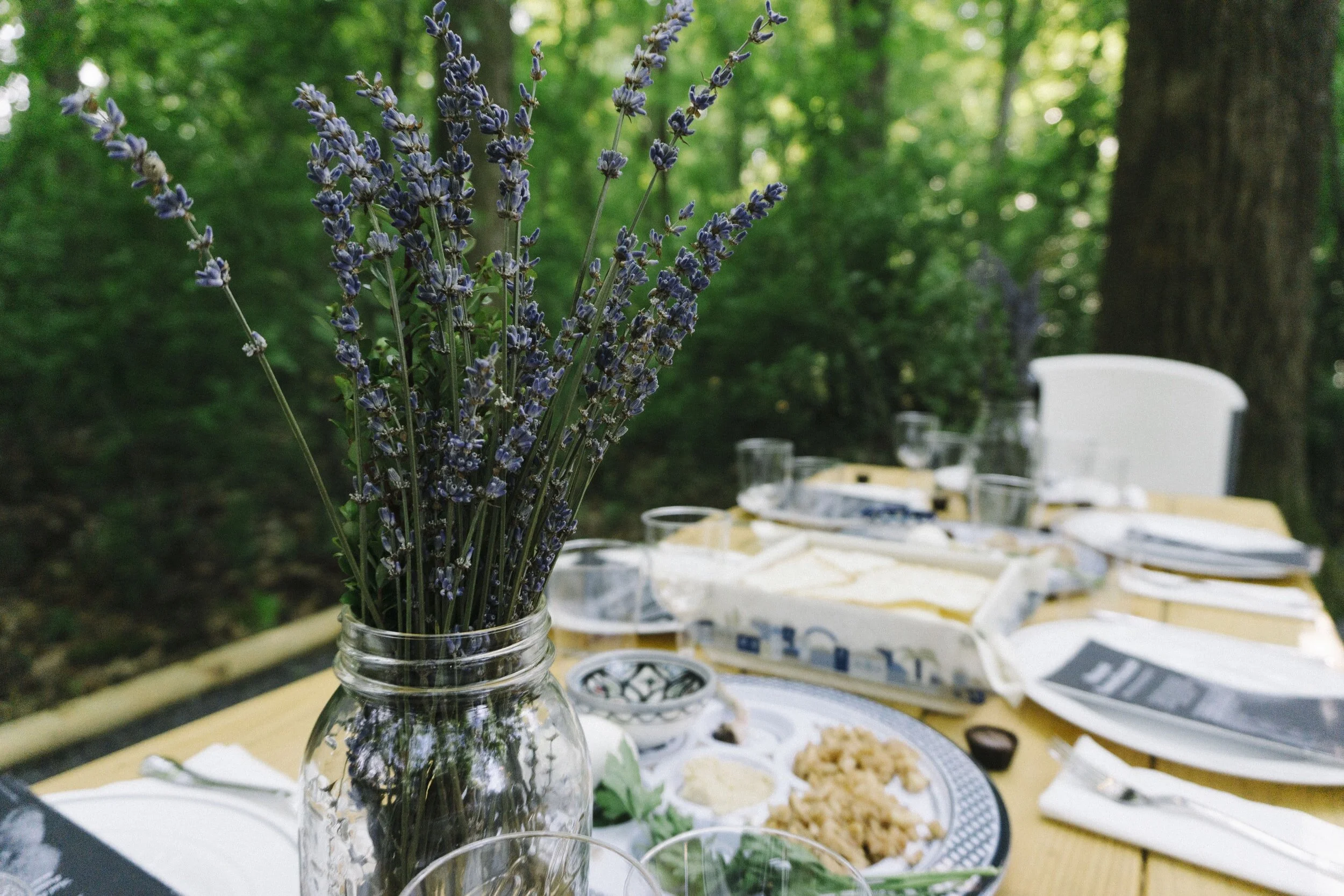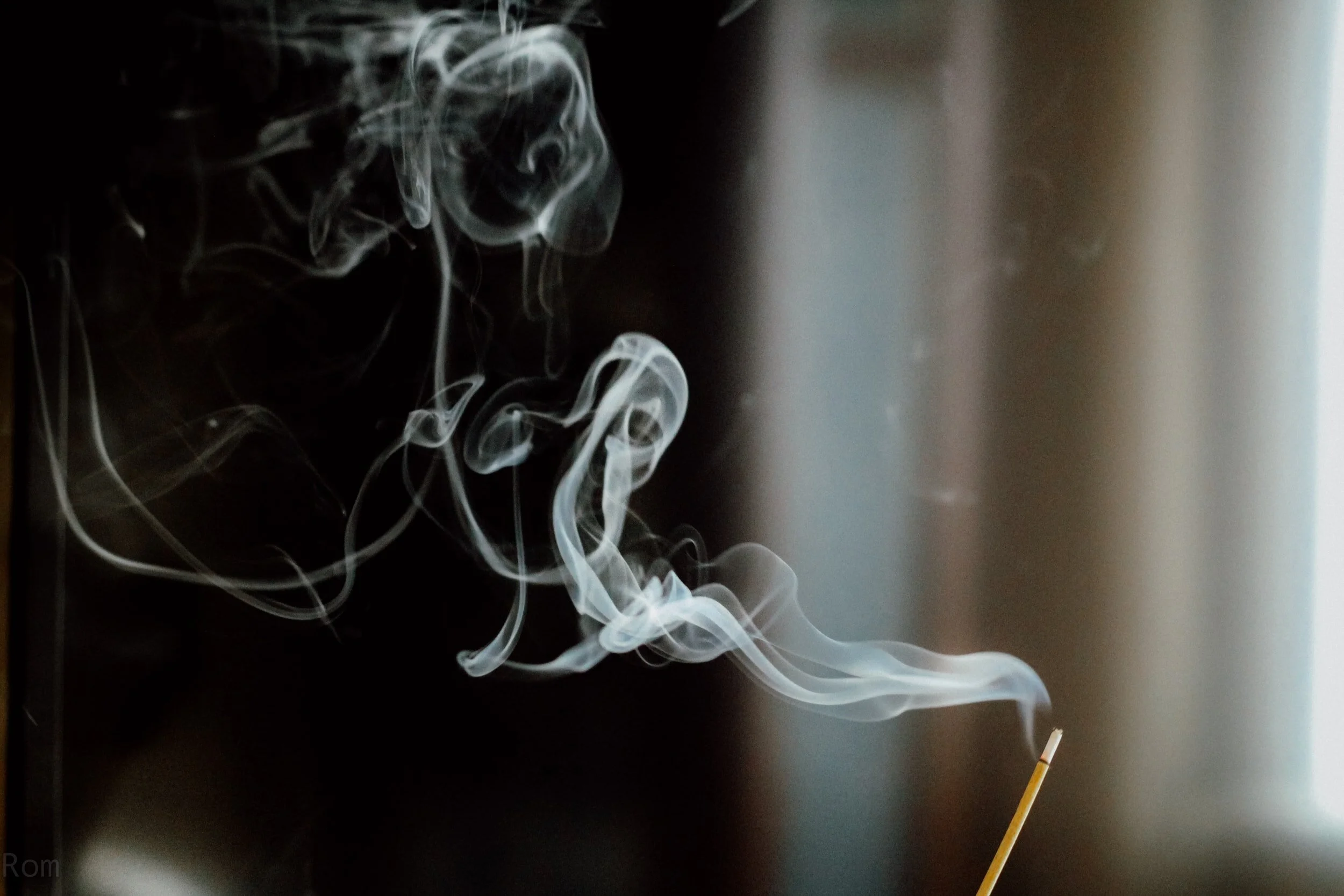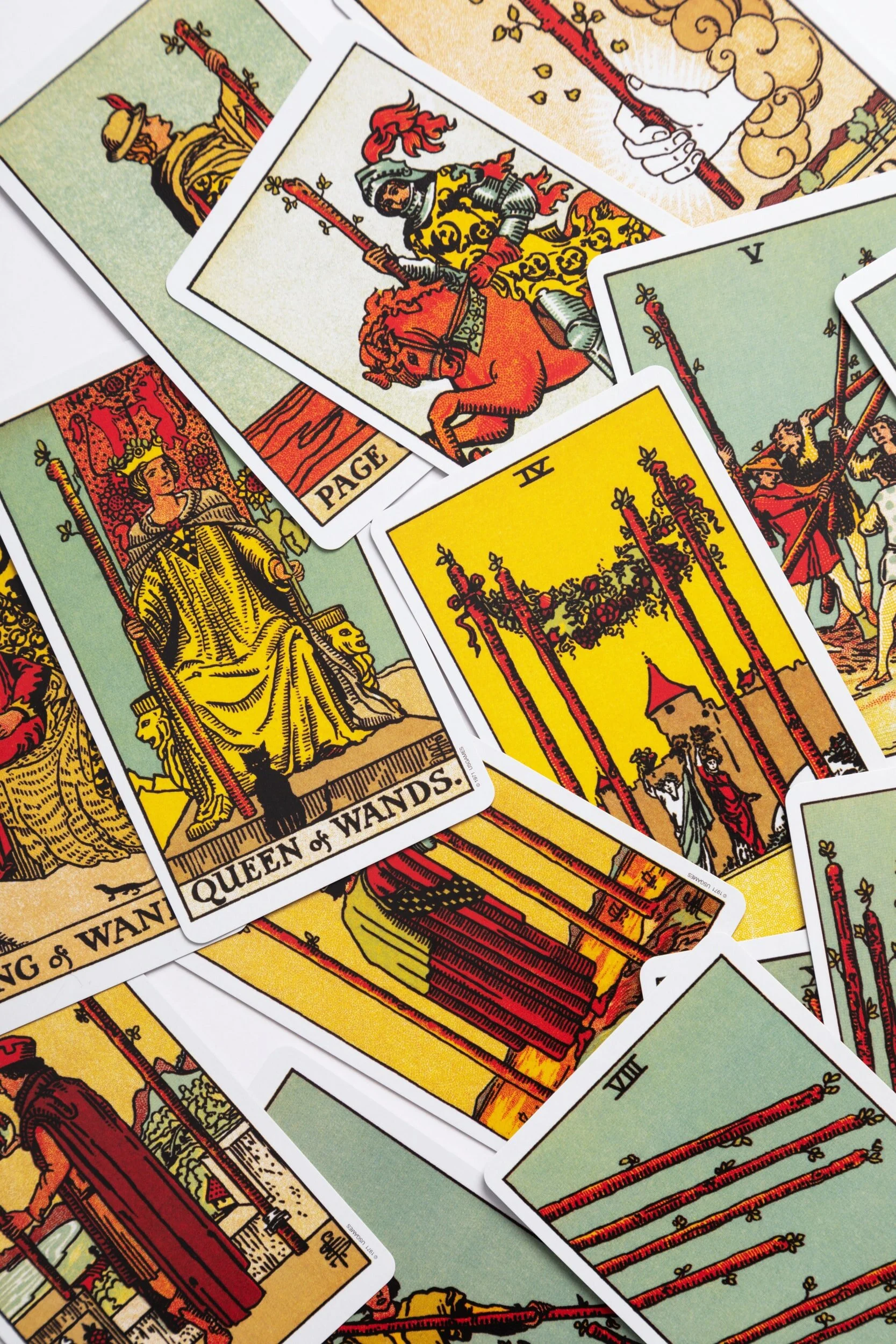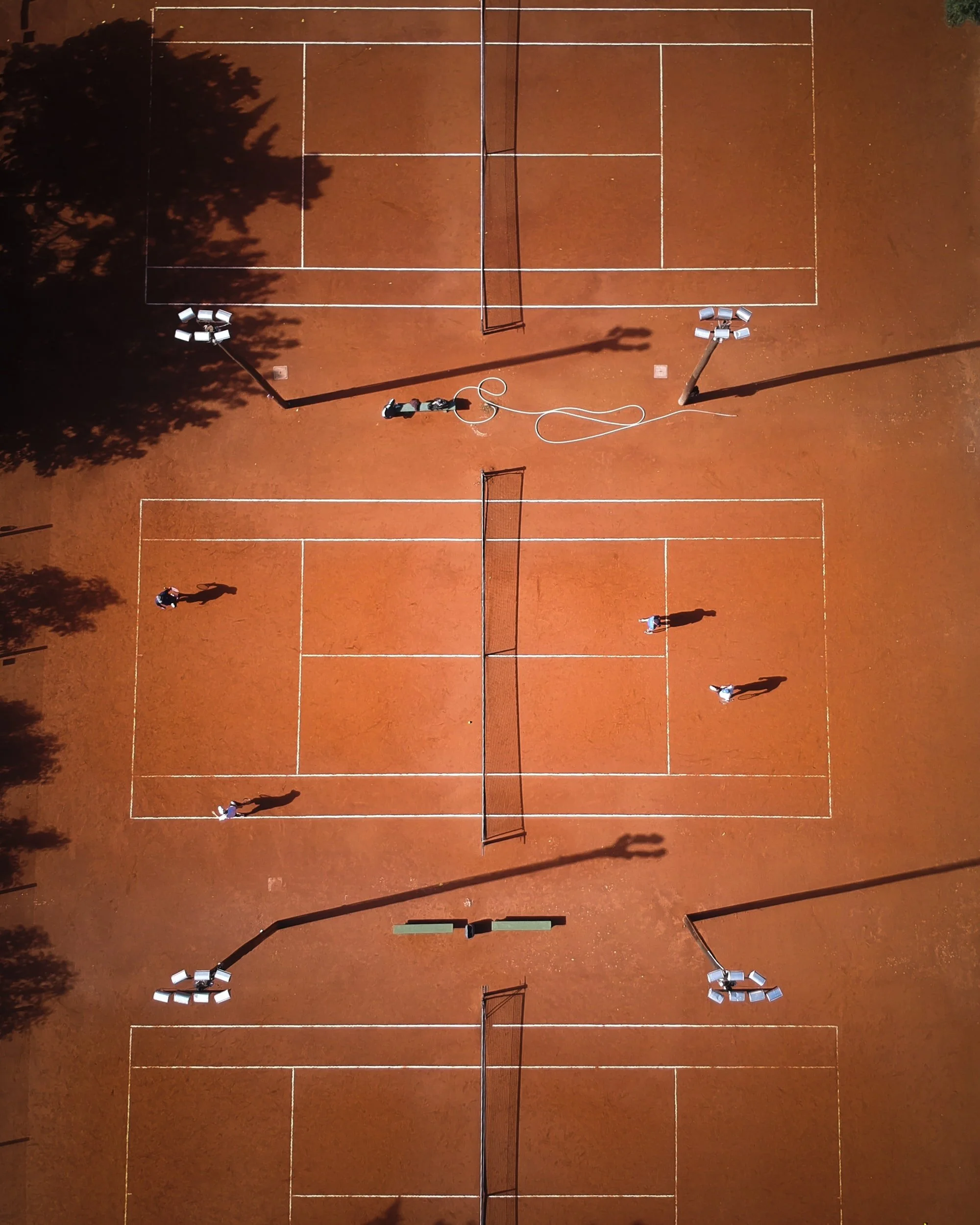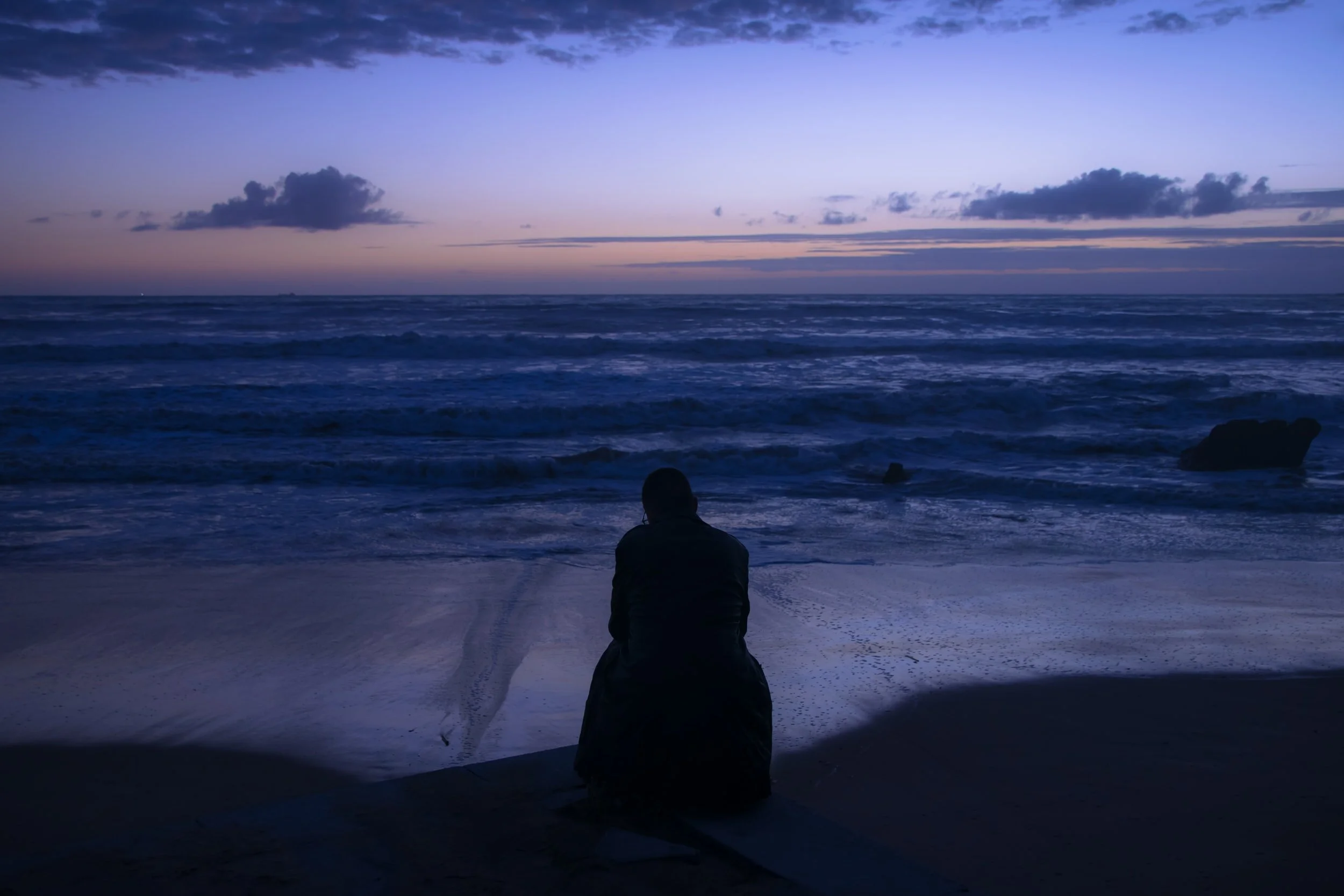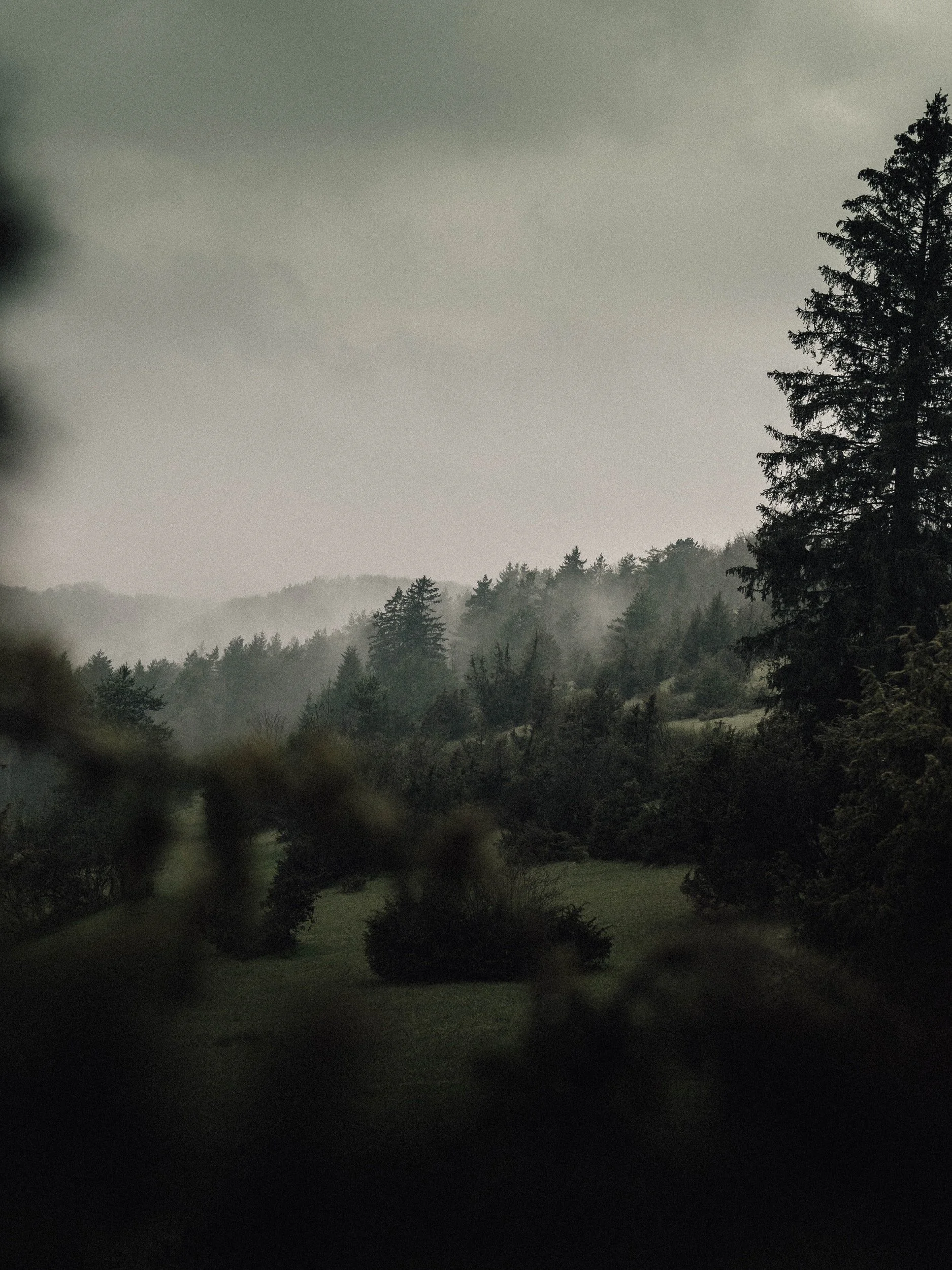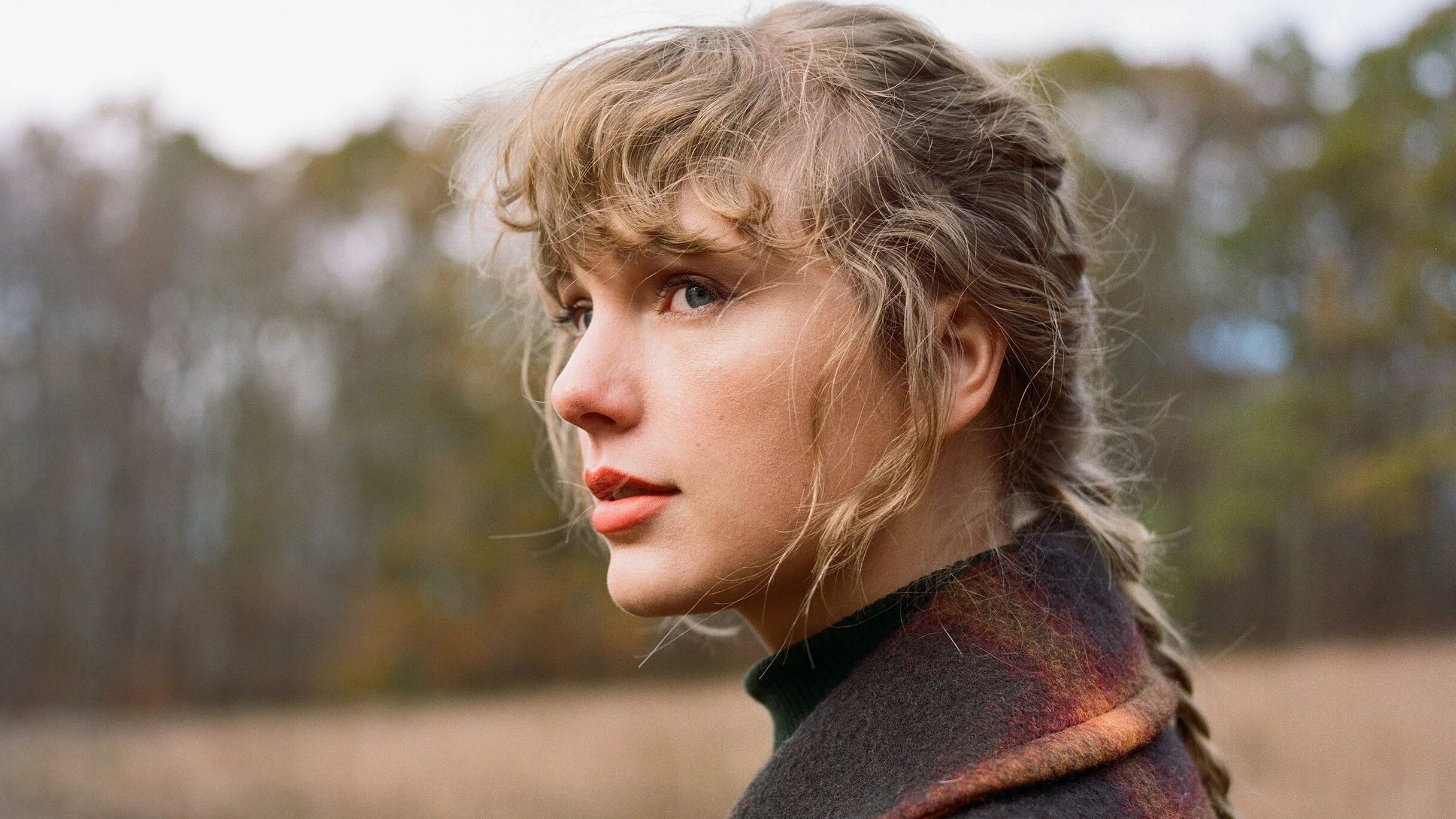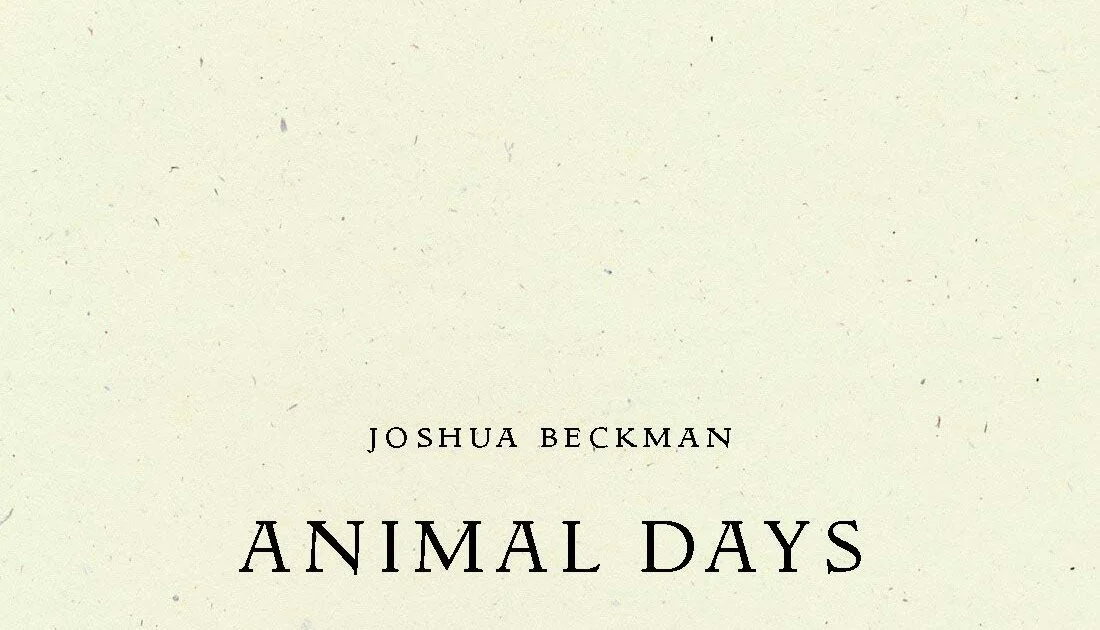
HOW TO POET
fields of haystacks.
Sadhika Ganguli is a rising freshman at Sarah Lawrence College. Her work has been published in Snapdragon: A Journal of Art & Healing, The Athena Review, For Women Who Roar, The Sheepshead Review, and the Jessie H. Butler Poetry Contest anthology. She is a proud woman of color and poetry is her passion. Writing, in general, has not only gotten her through tough times but has been able to complement the good in her life.
Written by Sadhika Ganguli
I saw a Rothko in person
and it felt like an enlarged part
of something Monet
would paint.
my eyes saw the two hues
of magenta and royal blue
and suddenly without warning,
i was taken to
a field of haystacks on a
summer morning.
5am and my barefoot feet
are
sinking
into
dew
i’ve been whisked away into
a light blue garden of peace
where the haystacks and i meet.
i’ve always adored serene
and quiet scenes,
not like a loud film on a screen,
but a place where i can greet the
green blades of grass that
Whitman once praised!
i wish that one of these days
i can be in
my own quiet haze:
where my only divide
is the nose between my eyes
the spaces in between the lines
and the blades of grass in the dew.
for a moment i was there
(dawn’s mist still felt in my hair)
but now my feet are covered
with socks and shoes
and i am in a crowded room
surrounded by absent-minded
people in an art museum.
Not Invincible but Alive
Esther Eidenberg-Noppe (they/them) interned at Youth Speaks Seattle, a non-profit poetry organization for two years, and was on the 2018 team representing Seattle at Brave New Voices, an international poetry-slam competition. Esther has been published in the 2019 anthology “Thriving While Trans” and the Sarah Lawrence College literary magazine Love and Squalor.
Written by Esther Eidenberg-Noppe
After Ross Gay
i dreamt of the hesitantly slammed door giving way to a ripped open wrist / mom saying “now would be the worst time to go / to the hospital” for the bleeding to stop (whether or not it comes with the breath) / i dreamt the racing heart / finally caught up with the freight train speeding past / of plotting claws mistaken for softness, eyes of I.V. drip snake venom and radium / i remembered yesterday they left heaping piles of toilet paper on the doorstep / that i must first have wiped down the plastic with thick layers of tide / that even goodness could poison this sickness / i dreamt an entire lifetime of waiting: for the dam to break, floods to evaporate / knowing which was more likely (even if unfair,) the water knows how to get where it is going (even the lungs.) / i dreamt of eyelids as unhinged door knobs / waiting to be ripped from their sockets, / (meaningless) apologies dangling (like the legs of school children on seat edges / tapping toes to clock ticks before recess,) from the tips of meaningless tongues / saying they are sorry: knowing it is no white flag or red cross for the hurricane of the chest / for what is growing next to the heart: analogies simply also excuses to pretend love out of fear / always waiting for the blood which must spill eventually (somewhere...)
but biking along the beach,
watched a crow drink from a public-use dog water bowl chained to a spigot
remembered water could not only kill but quench a thirst
saw the elderly monk sitting every day atop the same picnic table
facing the waving (puget) sound,
waved and he waved back
(whispered) thank you
passed by a middle aged man roller skating in a closed-off parking lot
watched my mother place childhood stuffed animals in the windows
for neighbor kids on quarantine scavenger-hunts
saw little free libraries stuffed with groceries, string lights hanging in the backyards of strangers,
twelve year old boys shooting hoops in the middle of the streets, neighbors talking from adjacent
garden beds, wind chimes singing from front porches, seafoam sprouting from contented waters,
lungs being lungs
(kept breathing)
i woke to the mercy of the sun
preyed in my wordless way to the wind
with grateful goosebumps and eyes, ears, lips,
drank from the spigot
(whispered) thank you
again.
Step 9 Retrograde
A. Spark is a NYC bred poet, transferred to sunny LA. She earned a BA in writing from The New School and sometimes performs as The Morrigan with The Poetry Brothel. She is glad to be walking the Earth with the many wondrous creatures she encounters.
Written by Allegra Parks
I forgive you for dying
A little inside when the fantasy withered
For not having the working memory
To cook eggs and waffles concurrently
I forgive you for plunging your hands
Into the hill of perfect flour
Before baking
For “Stop! I want it!”
your favorite slogan
I forgive you for dreaming of more bloody
Childbirths, slow mo all
You ever needed
Symbiosis separation reunion, repeat
For painting
His nails while he slept
For forgetting to put oil in the car
It burst into flames on route 29
I forgive you for not fathoming
Suicide threats can be fatal
Despite your mother, her deadness clear
I forgive you your brightness
Its shine accidentally blinding children
I forgive you
For using Jameson to quit
Heroin and heroin to quit
Jameson
For failing
To simply listen
To birds
Wishes
To the slick loop of time itself
To a Woman Carrying a Full-Bloomed Orchid on the Subway Platform
Brandon James O’Neil is from New York City and currently pursuing a PhD at the University of Iowa, working remotely from the Upper West Side. His husband—a medical resident at Mount Sinai West—and himself were married in December 2019, roughly three months before the outbreak of COVID-19 and spent the duration of the global pandemic in their studio. Brandon’s poems grew out of those months of isolation, protest, and uncertainty. His work has appeared in Image, Psychological Perspectives, and Plough and his poem "Cats" won the First Line poetry contest from Alexandria Quarterly.
Written by Brandon James O’Neil
Heaven, perhaps, is
a push of petals through
the bud skin
The afterlife a
flowering of
something rare but
something common too
An orchid
bought at
a drugstore florist
When I die, will
my flowers be full, like
yours astounding too
subway grime and smell
of piss exhaust heading
home from work?
Who like you
embraces my bursting
soul flower eagerly
envisioning the hall
table or countertop where
against a mirror my beauty
will be admired?
Is there even an
embrace? Is there a
mirror? Or is there only
buds retreating and
collapse and never-
again blooming?
Heaven, I hope
is a push of petals but
my dear I do not know
if the petals will ever
open much less if the A train
arrive to carry you home
Of Living and Dying
Kevin R. Farrell, Jr. is a New York based artist, poet, and educator whose work has been published in BONED – Every Which Way, Burning House Press, Rumble Fish Quarterly, Adroit Journal, Ink in Thirds Magazine, Foxhole Magazine, Yo-NEWYORK! and others. In 2021 Farrell released Best of the Worst, now in its second pressing, which consists of 20 poems that have risen to the top of the trash heap that is his constant documentation of a life spent toeing the line between spiritual bliss and emotional upheaval. His new book Top of the Heap is scheduled for a June 2021 release. As a recovering addict each day can be a struggle when dealing with the dumpster fire that is modern day existence. Sometimes Farrell attempts to put out the fire, on other days he warms his hands by the flames.
Written by Kevin Farrell
Haven’t been cutting my nails as often,
cut my own face,
she caught me chewing on a nail,
“when did you start doing that?”
Didn’t know what “that” was until it was pointed out I had a finger in my mouth.
Heard someone say something about “our time in quarantine...”
and I thought of my grandmother,
visiting her window,
talking to her on the phone,
I hear her voice.
I see her face.
Not the face I saw last,
but closer to the face I saw Christmas mornings,
the face I saw when she smiled and shook her head at some whack job bullshit I said.
“Nan, I feel like this is all a dream and I can use a remote to change the channels if I want...”
“Kevin, you can do whatever you put your mind to.”
And if I really could, I would have taken away her suffering,
but I couldn’t,
so instead I dream we are talking one last time,
I’m caught in mid conversation with what looks like myself,
I guess it’s better than biting my nails.
Trump's Twitter Erased!
Will Pewitt’s work in fiction, poetry, history, and philosophy has appeared in roughly two dozen publications. He has taught at a variety of institutions from the University of Arizona, where he earned his M.F.A., to the University of North Florida, where he currently teaches global literature.
by Will Pewitt
Five haikus made from erasures of supposedly “presidential” tweets.
letter for my lover on pesach
Ash Freeman is a junior at Sarah Lawrence College. They are originally from Miami, Florida but mostly write about their time spent in Michigan and the queer pastoral. They are the Editor-in-Chief of Love & Squalor. Their submission encapsulates their writing as a whole: honest, obsessed with love, and almost grotesque.
Written by Ash Freeman
I usually sugar my lips so they’re sweet for you but tonight i am coated in salt. kiss me bitter. I have never liked the taste of parsley so this year we use cilantro (it’s all we had in our fridge, anyway). when we sing i move my lips and hum because i’ve never liked the sound of my own voice and yours is so pretty it floods my throat. i want to drink it like manischewitz. let elijah in through the porch door but keep the screen door shut so the bugs don’t get in. i crush a critter with my finger as we talk about the plagues. it twitches for a moment and i try not to look at it as you pour another glass of wine for me. my family does a quick seder so together we’ve had a full bottle of cheap sangria by the time we get to eat.
(i can handle it, the first time i met your family i was so nervous i didn’t realize i was drunk till i got up to pee and almost fell over)
the truth is, i have fallen in love with prose poetry since taking a fiction class, almost like i’ve forgotten the power of a line break. but when i read you my poems you cry and i collect your tears for next year. they remind me of cilantro now (at least that’s better than parsley).
we lasted five days into passover without bread before we made sandwiches. it was just an egg smushed between two pieces of bread, if that makes it any better.
Frequently Asked Questions: A Checklist
Sharon Mesmer's most recent poetry collection, Greetings From My Girlie Leisure Place, was voted "Best of 2015" by Entropy. She's the author of several other poetry books, as well as three fiction collections including Ma Vie à Yonago, in French translation from Hachette. Four of her poems appear in Postmodern American Poetry: A Norton Anthology (second edition). Her essays have appeared in the New York Times, New York Magazine/The Cut, the Paris Review, and the American Poetry Review. Her current manuscript-in-progress, Even Living Makes Me Die, contains poems dedicated to 37 "under-known" women poets of the Americans, from Canada to Chile, from the 19th century to the present. She teaches creative writing at NYU and the New School.
Written by Sharon Mesmer
The Checklist is a form that was shared with me by poet and artist Fork Burke. She discovered it through Robert Wallace, who wrote, "In the end, the Checklist is perhaps nothing more than a vain and futile attempt to capture in writing the tiny details of one's life as they speed by too quickly and in too great a volume to ever grasp." A Checklist contains 33 items, the last of which is always “degrees.”
1. How many times this week has my morning commute, or just plain driving to the grocery store, turned into a road-rage-inducing nightmare?
2. Did a failed reporter bond to an alien entity and become one of the many symbiotes who will destroy Earth?
3. Will I ever get over “abbatoir is a grammar”?
4. Is the too-late start even a start? Even if I love unpeeled light?
5. Are all of us who haven’t slept well in years the same people that get eaten by wolves in pornos?
6. ¿Hay leche: Como puedo iniciar sesion?
7. So You Want To Make Block Patterns?
8. Brute force attack protection for the Jersey Community Meetup Flash Talk?
9. Is the smell of Sbarro slice grease and Kool-Aid coming from my hair? or the sky full-lit and full-tilt?
10. heart worms can crawl out of a dog’s nose?
11. Do you know why this street is called My Lapidary Fears Have Become Unguents?
12. Why should I unfriend her when I enjoy reporting her racist QAnon crap?
13. dmv written test practice or elvish translator?
14. If poets wrote laws and lawyers wrote an onomatopoeia of eyebrows?
15. Are aging and living mostly thermodynamic?
16. ¿Dónde? ¿Cuándo? ¿Quién? ¿Cómo? Ecstasy is some sugar daddy, si?
17. Contiguous areas of what?
18. the lizard starkly still against the boiling leaves but the devil just putzing around?
19. Artist, Anger, Abortion, America, and . . . ?
20. any old blue roving?
21. Are you finding strength in the softer vowels?
22. Is that Elton John? (No, it’s John Candy)
23. Monster buck can’t mate?
24. the vulnerability of order under afflicted stars?
25. You know what I’d really love right now? (Crackers?)
26. Ja Rule, just because?
27. So what are people? What is a fork? An ancient spoon? Are heebie geebies Jewish? What was the first hullabaloo?
28. the Doldrums or the Dardanelles?
29. Sam Sundown: to rise or to shine?
30. not the same robot?
31. there are secret notes in mezuzahs?
32. What if Peter hadn’t caught the wolf?
33. degrees
Excerpts from "I Could Never Have a Name"
Originally from Minnesota, Greer McAllister is currently earning a Bachelor of Arts with a focus in creative writing and literature at Sarah Lawrence College.
Written by Greer McAllister
(These may no longer be dreams.)
[But, before it all] it’s simple. Forsythia and chocolate tort in the morning. It’s sunny and I weep for my parents.
[Last month] I go into the bathroom and pull out my mother’s hairbrush. I’m just visiting and I forgot mine. It is packed with a thick layer of dark blonde hair I did not inherit.
[Morning] I feel bad about throwing away the newspaper today. Old world in the garbage can.
[Day] a new way of thinking: not enlightened, but peaceful. I am tucked away in the corner of my room, in the corner of my apartment, in the corner of this city, in the corner of this world, and I have, gently, overcome.
“Life won’t always be so easy.”
“I know.”
[Dusk] so we’re talking about space, space between the lines.
Once, I was a young dancer. A visiting instructor told me I say more with the space between my movements than the dance itself.
I tell him, “thank you.”
He says it wasn’t a compliment.
[Night] heavy snow today fell fast like a woman letting down her hair with frustration, or a line of identical cars speeding down the highway.
Soon, the sun sets and everything is pink, including you and me. Pink bodies on pink bodies, a few men pile them on top of each other and cart them away.
Next, I blush because you compliment my hands, the way they look like your mother’s. I hold them out so you can see them better.
Eyes blink slowly as the piano begins. I watch as you close your eyes, the music playing us out. I finally sleep and we are brought out the front door and onto the men’s cart with the others.
[Dream] making love to my ex.
[Dream] I am in a foreign country in a small city, maybe in Germany. I am with a woman and her baby girl. We are walking around the town mall and trying to think of a name for her daughter. Then, while she is paying for something, a cat, an orange cat, walks over to me. It is very sweet and has a broken leg. A few feet away, I see a man that I know and walk over to say hello. It has been a while. I tell him and the woman about the orange cat, but we all leave without helping it.
[Dream] making love to my ex, purring cats.
[Morning] a sunny morning. Scorn myself later for not appreciating it.
[Early afternoon] again, I am out walking. I reach a park that's not really a park. Wooded mudland, twisted with trash and vine-wrapped trees. I feel moved by the sun and decide to trek into the land, off the road.
Amongst the trees are large boulders, broken glass, deflated plastic, a rusted chainsaw, and a metal filing cabinet. Most surprisingly, is a small, thriving bamboo forest near the back of the park. Someone must have planted it long ago, not knowing its invasive nature or believing it could survive the New York winters.
I step down into the tall green stalks. In the center, there are seven folding chairs arranged in a circle. I can only imagine what goes on in the bamboo forest.
Passing stars overhead, dripping-green seance, seven souls among the reeds, broken beer bottles glinting pieces and pieces of their bodies, words, whispers, shouts.
Soft declarations of love.
Little youth.
Looking past the leafy canopy to heaven, clutching your coat, trudging back up, out to the
road.
[Late afternoon] the buzz of coffee, the world is bright and textured. Beauty mark on my jawline.
[Night] there is nothing I want to do more than write. My sister calls me in tears. She has just finished reading some poems I sent her.
“The birds in the last poem were the birds at grandma’s funeral.”
“Of course. There were so many that day.”
“A thousand birds along the highway.”
She says it’s like I’m writing just for her. We don’t know if others will understand.
[Night, high] broken geode, friends laughing.
Itching palms, picking agates like berries from the shore, stopping at roadside cemeteries with my father even though we have no relatives residing there.
[Late] I could tell you that I prayed to the Virgin Mary as a girl. Her blue bust reached out of the church wall during Wednesday afternoon mass, paint chipping off her milky white face.
At night, I would wish to her like a star in the sky. I could see her just past the lilacs, sitting on top of the moon, swinging her legs off the side. Her veil could reach all the way down to my backyard, the end fluttering against my bedroom window. When I opened it, I would see her wiggling her toes, could hear her laughing.
[Dream] I have the eyes of a cat. A certain man is afraid of me. Fuzzy black and white. I show him my new black dress. He is still afraid.
[Dream] the brunette girl brushing her long hair slowly. An absent look in her eye.
[Morning] soft sheets for my body, sheets gone soft from my body.
Collecting old glass bottles for the windowsill, coffee with lots of cream but no sugar.
[Afternoon] sometimes I shuffle a deck of tarot cards to keep my hands busy.
My maternal grandmother taught my sister and me to read tarot years ago. She has been reading cards for her friends since she was my age, wives attempting to read their future while mourning their youth. She sat with the two of us one afternoon. Our other grandmother, our father’s mother, had just passed away and she was in town for the funeral. She read cards for each of us, one after the other, and pulled every card about grief in the deck. We all sat there in awe.
Now, as I shuffle, a single card falls out. The Star. Harmony, hope, relief. A nude woman kneeling on the shore, holding one jar of scalding hot water and another of cold, pouring them into the sea continually. A large star hangs above her long trailing hair.
I place it back in the pile quickly and keep shuffling. Again, the same card falls out of the deck, landing on the floor. I gather it all up frantically and I pick a card from the middle– for the third time, the Star.
Again, I sit in awe, because I know it is the brunette girl from my dreams. She must live on that night-shore, kneeling in front of that water, continually.
[Evening] broken robin’s egg on the sidewalk. So small, can barely see the yolk splattered like paint.
[At night] I look at pictures from over the years. Only took pictures of myself, obsessed by my own image.
My mother never let my sister and I have mirrors in our bedrooms growing up. She read in a book somewhere that it damages young girls’ self esteem.
Some of the pictures are serious, some are childish. It is these that make me feel a certain kind of sadness. If only I could apologize.
[Memory] ground bees flying in the clover one Sunday. My parents decide we will stop attending church. I tell them I can’t abandon her.
[Dream] the smell of a person I don’t recognize.
[Dream, morning] I am in a foreign city with my father, mother, and sister. The people around us are speaking french. We are tired from walking. We rest near a cafe in the full morning sun, so bright we have to squint our eyes to see each other.
When I awake I am alone in my bedroom, far away from France or my family, but my bed is full of the same morning sunlight, so sunny I have to squint to see, to see that everything is a cream color, and full of that sadness, including my pale body.
[Noon] it must be spring now. The sun is a companion along the way, on the train, on this train.
“Where are we going?”
“Well, do you want to come with me?”
“Can I?”
“Of course. Sometimes I get sick of the sun.”
[Afternoon] a crow that sounds like a dog, like daffodils. Daffodils don’t grow where I’m from.
Moon in the blue sky. Blue sky like blue lily, like love, like licking your lips to get the last taste, like living as someone else because life hasn’t been so kind.
I could be dipped in coffee and eaten up if I wanted. I have been offered this. I told him no, not right now, maybe later.
[Late afternoon] my sister reminds me of the ancient church-house on the block we grew up on. For a long time, it had a small religious bookstore in the foyer. Its owners cooked in the old parish kitchen and slept up in the choir loft like angels.
[Dream, dusk] purple evening, and I begin to remember all the moments of my life I have forgotten.
When I was seventeen I visited Vienna. I decide now that she looked like this city, the brunette girl: plaster walls and gold trim, and when I walked through her markets and churches, there was nothing but incense and rainwater, the curve of her question-mark spine, knobby knees, asking, “Do I look okay?”
Maybe she looked like the women of Schiele and maybe not. I don’t want to tell her.
Maybe she was a dancer as a girl, like I was, comparing in the mirror our waists, our arms, the length of our hair.
Now, the white morning gives her away. Her dark down, her body-taste.
Miracle.
[Late] always looking out the window, framed by the pane. I will never be immortalized.
[Dream] something about a widow, a red-breasted robin.
[Dream, morning] when I awake, she is gone and I am alone with myself.
I think the cat is hungry for his breakfast.
[Dream, late morning] the I, the eye. The absence of music, the crab apple tree– dead cats buried underneath.
[Dream, midday] Where do you think she’s gone?
Flowers For Dinner
White Morning
Lace Lake
The Lace Lake
Morning, Mourning
The Living Living
The Day at Lace Lake
Woman in the Window
[Memory] her veil taps against the waving glass.
[Dream, afternoon] I am sure of it now. A vision of Mary, like the ones where they see her statue weeping. Chipped paint falling from the sky.
[Dream, night] I am standing somewhere high, looking at it all. I hold up a piece of blue glass to my left eye and the sun begins to rise. I walk into my parent’s house that I don’t recognize. I am only visiting.
The empty, warm winters are what I remember most. A mother’s brooch, a fistful of dandelions, a penny, a few books of a father’s, the stars washing overhead.
Would you tell her something for me?
[Dream, dream] something about absence, about incense. Something about praying.
Not Sure Where To Spend Your Summer Weekend at The New York City Poetry Festival? Let the Tarot Decide!
Not Sure Where To Spend Your Summer Weekend at the NYC PoFest? Let the Tarot Decide! | Clickbait is a blog designed to shamelessly attract attention to poetry. Using devices typically reserved for online “clickbait” like listicles, how-to’s, trending topics, SEO, hashtags, hyperlinks, hyperbole, sensationalism, puff, and fluff, the poets at The Poetry Society of New York are having a little fun.
First, pick a card:
The Sun
The happiest card in the major arcana. No other choice radiates with quite such optimism and vivacity as this one; a young child riding a white horse in the foreground shows that you long to connect to your inner spirit and reclaim the innocence and unadulterated joy of youth. Those who choose The Sun are ready to claim the fruits of their labor and align with the abundance they know awaits them. We suggest you take your love to the Youth Poetry Festival, a gem of an event sequestered in the grown-up world of the Summer Fest. Here you’ll be invigorated by your inner energy as you listen to the wisdom of toddlers, teenagers, and everyone in-between. Surrender to the cosmic zeal that awaits you, and realign your energy with youth.
The Moon
With a watery vision of a crayfish that emerges to greet a wolf and dog, the moon represents connection to intuition, dreams, and the subconscious. Its chooser might be voyaging through a time of uncertainty and illusion, and need to attune to a deep divinity or insight in order to move forward. Planting the seeds of the abundant future might require that you listen to your heart, and the underbelly of the human consciousness that runs through your veins. For you we recommend The Typewriter Project, where you’ll get to sit in a typewriter booth outfitted with a vintage typewriter and 100 feet of paper. Inspired by the idea of an Exquisite Corpse, this surrealist writing game allows several authors to contribute to the same poem, adding on ideas to create a single emotionally coherent work. Tap into the city’s subconscious and better yourself in the process.
Temperance
The balance card. An angel stands with one foot in the water and one on land, and mixes water from two chalices, forging a perfect harmony. Reader, have you mastered the art of patience? You probably have a clear vision of what you want to achieve, and strive toward inner peace and moderation. But in order to get there, you’ll need to perfect the alignment between your thinking and feeling minds. Head over to Milk Press Happenings, where you’ll see a collection of works created on-site set in chambers. Each one contains an intentional mix of poetry and visual art, as well as performance and lighting design, climate control and music, fragrances and soundscapes, all unified in their mission to awaken your aesthetic impulse. Couple the registers of your soul and you’ll surely find abundance.
The Hermit
Has isolation provided you with a new path to the mountain? You might be feeling like your lantern only illuminates the next few steps, and long for guidance after this period of introspection. You are masterful at drawing up energy from within, and now it is time to bestow that energy on the world. To find an intimate group with whom to share your wisdom, stop by the Ring of Daisies Open Mic. Stop by the sign-up early in the day, and you’ll be presented with the choice to step into the daisy circle to read a poem in radiant meditation and community with others. Or if you prefer, sit in the waving July grasses and let your fellow hermits pour their energy into your changing heart.
The Tower
Lightning strikes. You take your lover’s arm as the ground below you crumbles, and you begin to fall. Just when you felt at-ease the world slashes all promises, and now you’re chaotically scrambling to climb back up. Dear reader, do not fear: the tower is a card that promises profound enlightenment. Maybe you chose it because you have seen the cracks forming and harbor a deep wish to be spiritually shaken. Who doesn’t feel this way these days? I suggest you head over to The Poetry Brothel, an immersive literary cabaret that mixes activism, vaudeville, burlesque, magic, and mysticism. Do you secretly like it when poetry readings erupt instead of fluttering? Give in to the divine timing of the universe and open yourself up to change, body and soul.
What would a poetry vying for attention look like?
Halim Madi is a queer Arab poet. He grew up in Beirut, Lebanon, left at 17 to study in Paris and Toronto and worked in London and Sao Paulo. He now lives in San Francisco. Halim is a TED speaker, a product manager at Oculus working on the future of virtual reality, and a poet. In 2019, he asked his friends for crowdfunding support and wrote "Flight of the Jaguar". The story of what happened during these 14 years. The space between being a poet and becoming a poet. The leap of a cat. In 2020, also with friends’ support, he wrote and published "In the Name of Scandal", a collection of poems about sluthood, the immigrant identity, queerness and plants that make you see colors.
Written by Halim Madi
Exhibit 1
Listen to your heart it is whispering
the stories you’ve forgotten
to tell the child inside
Exhibit 2
Bury us
while you’re at it
Peel our nails
The skin that’s under
is a weapon a rocket a knife
pointed poignant painting your privilege
as oppression
Exhibit 3
1:15pm Santa Barbara’s lower riviera, I buy
10120.13764808 OCEAN TOKENS
This cryptocurrency my new visa
Replace my Lebanese passport with a portal
To salvation
You can be rich too
Just keep trying
Exhibit 4
Stay
strong believe
in your dreams, you are the captain
of this ship
don’t settle stay
Focused — out of many one
You you you you you
This one
too shall pass until it doesn’t
Exhibit 5
Mother,
When did you become a man
Married into a lineage of testosterone
As you grieved your husband
Grew Adam’s apple
Bit, grinned, spit sideways
Pointed at my little hands, said
Man up
Exhibit 6
I was walking up this hill and decided to sit.
I’ve been here for 3 years.
This poem about consciousness
will last a lifetime
Exhibit 7
12 13 14 Reminders:
Buy shorts, squash and a black hair tie
Write a letter to Rachel
Also, quinoa
Schedule time with Andrea
Don't self medicate
Build an altar for your father
Something is singing, maybe waiting. Are you late?
Don’t mistake silence for depth, especially in men older than you
Ask a doctor first then self medicate
Avoid carnivore flamingos, standalone devices, two-way mirrors
Don’t jaw-xercise, it hurts your ears
Forgiveness the red circus where we juggle blades
The lizard brain is my favorite
This whole age thing turns out to be real
Gratis Versus
Raised on the rural and once-rainy Oregon coast, James Joaquin Brewer now shelters in place in Connecticut while defying the uncloudy but unclear skies of gray above to spark his imagination. A recent publication about his early life in Oregon may be found at the following link: https://thewritelaunch.com/author/james-brewer/ .
“An imitative meta fiction about poetry and poets” by James Joaquin Brewer
“I’d as soon write free verse as play tennis with the net down.”
After Robert Frost picks an apple from the kitchen bowl for breakfast on the first warm morning of spring, he makes sure to tie the bright white strings of his size-nine Converse high-tops as tight as his arthritic fingers will allow. (Care of the foot is critical.) Eager for the new experience ahead, he grabs his old canvas gym bag and sneaks out the back door, apple in hand, to meet his good neighbor Jack K. on the other side of the gate for the short walk to the unfamiliar court.
Throughout the previous spring, at Jackie’s insistence–proclaimed on the first day of the new season, the idea just generated spontaneously it had seemed to Robert –they had been committed fencers. (“Oh, just another kind of outdoor game, / One on a side. It comes to little more . . . .”)
The foils were surprisingly expensive, but they had saved a considerable amount by electing not to purchase masks. “We don’t need no stinking mercy masks,” Jackie had growled at the cashier before converting his tone into a soaring laugh. “We won’t be getting that close to one another, merci-you-very-much. We’re just taking it up for the exercise–the chance to limber up and increase our flexibility. I’m not a’feared of my partner here–he’s quite . . . disciplined.” He prodded the button at the end of his shiny new toy against Robert’s chest. Robert half-smiled, took a step back, and carefully tucked the credit-card carbon into the pocket of his weather-stained windbreaker.
By the end of that rather short season of thrusting at one another under the inconsistent shade of some decrepit trees in the town park, they shared the opinion that Jackie’s prediction had been reasonably close to accurate. The few minor scratches both had received were easily treated with the contents of Jackie’s modest medicine cabinet. On each of these unfortunate–but rare and mostly peaceful–occasions, Robert would stand out in the driveway and wait for his good neighbor to return from behind his irregularly bouldered fence with a couple of drugstore bandages and a tiny vial of antiseptic lotion. By the time spring had turned to summer and the pair had decided to switch to croquet, their consensus was that when it came to fencing they were well-matched.
This year, again at Jackie’s insistence, they decide their new spring game is tennis. At his insistence also, to save on gasoline they agree to use the nearby grade-school playground basketball court–even though it lacks a net. “Who needs a net anyway,” says Jackie. “I’m too old and stiff to properly leap across one without killing myself after I beat you six-love, six-love, and six-love.”
“Maybe so,” returns Robert, “but I’ll pretend it’s there, just low to the ground, as I skip across it after smashing that last fast winner past your feeble forehand, your feeble backhand, your any kind of hand!”
“I take that as an impolite and unpoetic insult,” sends back Jackie. “Bad form, sir, bad form!”
“Well, sir,” replies Robert, “mark my words well–and yours too–after what you said about love-love-love it serves you right! Who are you to accuse me of bad form?”
“Serves me wrong, you mean,” retorts Jackie, watching Robert take an ancient-looking tennis racket from his dusty gym bag. Suddenly Jackie reaches down and snatches two tennis balls from the open bag, then straighten sup with a grin that becomes nearly a leer as he tries juggling the pair of fuzzy spheres. Robert stands scanning his good neighbor from head to toe for a moment before slowly extending an empty hand to intercept one of the balls, the other falling to the ground and dribbling away to bounce off the pipe-metal stanchion supporting an un-used, chain-netted, rust-coated basketball hoop.
“You’re out of bounds, sir,” shouts Robert. “Over the line!” Holding the head, he points the wooden handle of his racket first toward the rolling ball and then down at Jackie’s size-twelve shoes. “And according to my measures, you’re a foot-fault just waiting to happen.”
They each laugh as they stake out opposite sides of the net-less court, their vocal sounds seeming similarly erroneous and forced, each wishing silently for a return to fencing.
I just don't invite him.
Dominque Carrieri wrote the collection of poetry the before & the after to capture the shifts in life before and after the loss of a parent. The poems were compiled after the death of her father, who passed in 2016 to Pancreatic Cancer. When he passed, she recognized a shift in her writing. She no longer related to her work written prior to his death. Years later, she watched her work transform into longing to eventually a fixation with mortality. She knew this collection could not flourish without showcasing both her trauma and the bliss of life before it. So, she chose to let it exist as one stunning experience. The full manuscript has only just begun its submission process to publishers.
Excerpted from the before & the after by Dominique E. Carrieri
I stand in the center of a circle, in full view of my
peers. I pull snakes and tiny lizards from my
exposed abdomen. The sensation sparks
fluttering anxiety that morphs into confusion and
honest curiosity. I wake from the dream and cry.
The internet tells me I’m missing someone inside
me that makes me feel whole.
At this point, my partner and I have been together
for over two years. We’ve shared two homes, one
dog, and own a printer, so I’d call that a pretty
serious relationship.
He is a large, bearded, cis man with teddy bear
eyes that make you wanna say, “hi.” Standing
beside him presents me with a privilege I’ve never
felt, to be catapulted to a world that perceives me
as an insanely helpless heterosexual being.
I’ve always kept my identity safe in sacred places
and sometimes it speaks so loud I imagine its
voice could blow a train across the country.
Sometimes, it puts lizards in my stomach.
Other times, it is quiet and hides in the tiny
wooden drawers of my grandmother’s jewelry
box, waiting for dark filled silence to gently lower
the rowboat, sailing tirelessly back to the queer
world I call home.
I’ve always been a bit of a wild card. I love to lick
the spoon in front of people who have opinions on
loud chewing or messy eating.
I love assembling hurdles in front of those who
challenge things they cannot change almost for
sport, but this world is exhausting.
In this world, I cannot be many, only one.
My ravenous queerness challenging norms and
social paradigms can be seen as threatening and
sometimes even dangerous.
My lack of feminine nature results in the
misconception that we aren’t a couple at all and
we take front row seats to each other’s
discomfort, while we dodge the advances of
unknown, interested strangers.
I bring to the table some of my darkest memories
in my partner’s most comfortable environments.
The more my queerness bleeds onto my clothing,
my speech, my car, my hair, the more this new
world tells me:
“This isn’t what a heterosexual couple looks like.
This isn’t even what a queer couple looks like.”
But what if it is?
If my love is to exist, he loves me because I am
queer. His response to my identity informs his.
We stand beside each other and our identities
remain tragically different, but isn’t that true for all
people?
In order to be together, we must also know how to
be apart. To operate on the most opposite of
hemispheres, to live even if it means accepting
each table isn’t a party of two.
You won’t notice my partner in attendance at most
queer gatherings. This is not because he doesn’t
want to be there.
To be honest, I just don’t invite him.
To Remember You in a Smile
Yasin Ertas is a second-year MFA student at The New School, Creative Writing/Poetry. Yasin has been living in NYC for 6 years, and previously studied International Trade in Turkey, Hungary, and Belgium with the Erasmus Program, as well as published a book in Turkey. Yasin’s articles appear in well-known newspapers Milliyet and Radika (one of them is banned because of Yasin’s political beliefs); Yasin’s poems appear in famous magazines Dil ve Edebiyat, KafkaOkur, Ot Dergisi, Kirpi Edebiyat in Turkey.
Written by Yasin Ertas
to remember you in a smile. my dear I don't have one. but you're in my
mind. it's a spiritual thing. no it's more. it doesn't have a past. doesn't have
a future. there is no where where it begins. nowhere where it ends. it’s just
a repetition. a repetition in the repetition. the creativity of the repetition that
comes out from the shell of the repetition. say if I am a gramophone and my
mind is a record that is filled up with you my dear. filled up with you. in my
mind you are playing. I hear. do you. do you my dear. you are the only and
most beautiful piece that is playing there. there is my mind that is you. you
are playing there. rotating. twisting. dancing. dressing undressing. it’s
playing 24 hours without stopping. don’t you think that makes me the
hardest worker in the world. you are. you are playing in my mind. this is
your music. your lyrics. you grow up in my mind. keep growing. transform
everything. destroy the distances destroy the time. ruin the language. I kiss
the eyes of your lyrics.
to remember you in a smile. my dear I don’t have one. instead of
remembering you in a smile to remember you in an orange light at midnight.
how nice your face would be seen. your nose. your neck. no one can
describe them better than me. to remember you in a wine glass that perfectly
resembles your body. to remember you when I even look at the curves of a
3. to remember you when a train delays. when a hand opens a mailbox. one
gets a hair cut. learns spanish. when snow melts. when a flower blooms or
fades.
when I have only 13 dollars in my bank account and in my pocket many
quarters I go to a deli and make these quarters singles then deposit the
money into my account so I withdraw twenty bucks and go back to the deli
and buy twelve bottles of beer. to remember you my dear to remember you
in what I wrote in brussels in ’14
the most beautiful wind is
neither on gentle leaves
nor on any nation’s flag
but when a woman releases her hair
you are that woman I desire. to remember you in what I didn’t write. in what
I will write on saturday. may 1 2021. to remember you in remembering you
is to remember you.
each time when i hear my name. that’s not happening a lot. getting even
less. but again you are there. you are my loneliness always with me. no. you
are not. because once I tried to leave my loneliness at grand central train
station to be more lonely. do you believe that. but I cannot leave you. you
are everywhere. you are a dress. first a mom whom i’ve never seen wear
that dress now her daughter marie wears it.
you are on the streets when elderly people who look like bread crumbs left
on the table in the 1950’s 40’s make their turns unnecessarily safely like a
long vehicle although their deaths won’t come from a car accident or from
a street fight or I don’t know how because they passed that exam a long time
ago. a long time ago. a long time ago. each of them has ten twenty even
some have forty different long time agos when I talk to them. you are also
in each of these long time agos. it’s hot it’s cold you are there too. as I do
jaywalk I first look at the left of me then to the right then cross the street.
you are first on the left then on the right and later you appear in front of me.
a few weeks ago I wrote my shortest poem called I, Myself
to think of you I go to new jersey
february 4 2020
new york
you were there. but you were not only in the words. because you were also
all over the empty spaces on the page that I left deliberately. you should’ve
seen yourself. you should’ve seen yourself my dear. how you became
crowded. As if the echo of your body appears everywhere. does a body have
an echo on the empty page. yours does. can an echo be seen. yours can. no
one saw you but I. to remember you on an empty page.
if I live because of you. because of where you are. my dear I haven’t found
you yet. but I know you are somewhere. somewhere I don’t know.
somewhere who knows where.
Rembrandt's Eyes
Grace Maselli studied in New York City at the Writers Studio founded by American poet and author, Philip Schultz. Her work has appeared in Cleaver Magazine, Poydras Review, Streetlight Magazine and The Penmen Review. Her poem, “Queen of African Violets,” was the 2019 first-place winner in the Jacaranda Poetry Contest sponsored by the Pasco Fine Arts Council and the Cannon Memorial Library at Saint Leo University, St. Leo, FL. Grace lives in the Tampa Bay Area with Sophia, Jackson, Francis, Olive, and Lexilu. Her poem, “What the Hair is Going On?” was published as a mini chapbook by Phfours Press, Ottowa, Canada.
Written by Grace Maselli
To forget his eyes is
to unsee
cardinals in sudden
drops
the falling knives from fixed
points to a failing
branch or
from the sky
flying left
to right across chartreuse,
a color made by Grenoble monks
of France
The chiaroscuro of sadness
and change:
It will never be
the same
broken set of rules,
though memory will
apportion itself for dramatic effect
A masterwork
of darkness left,
and a fixation on
light that gets through
to something unable
to reverse itself no matter what
in the slight
of regrets
in the etching
of weightless fingers
left with nothing more to do
than sway
above a delicacy of
fading bones
10 Cats We Think Host the Reincarnated Souls of Dead Poets
Yes, this is what we think about in our free time. Haven’t you ever been a little curious? Here are 10 cats we think host the dead souls of reincarnated poets.
Yes, this is what we think about in our free time. Haven’t you ever been a little curious? Here are 10 cats we think host the dead souls of reincarnated poets.

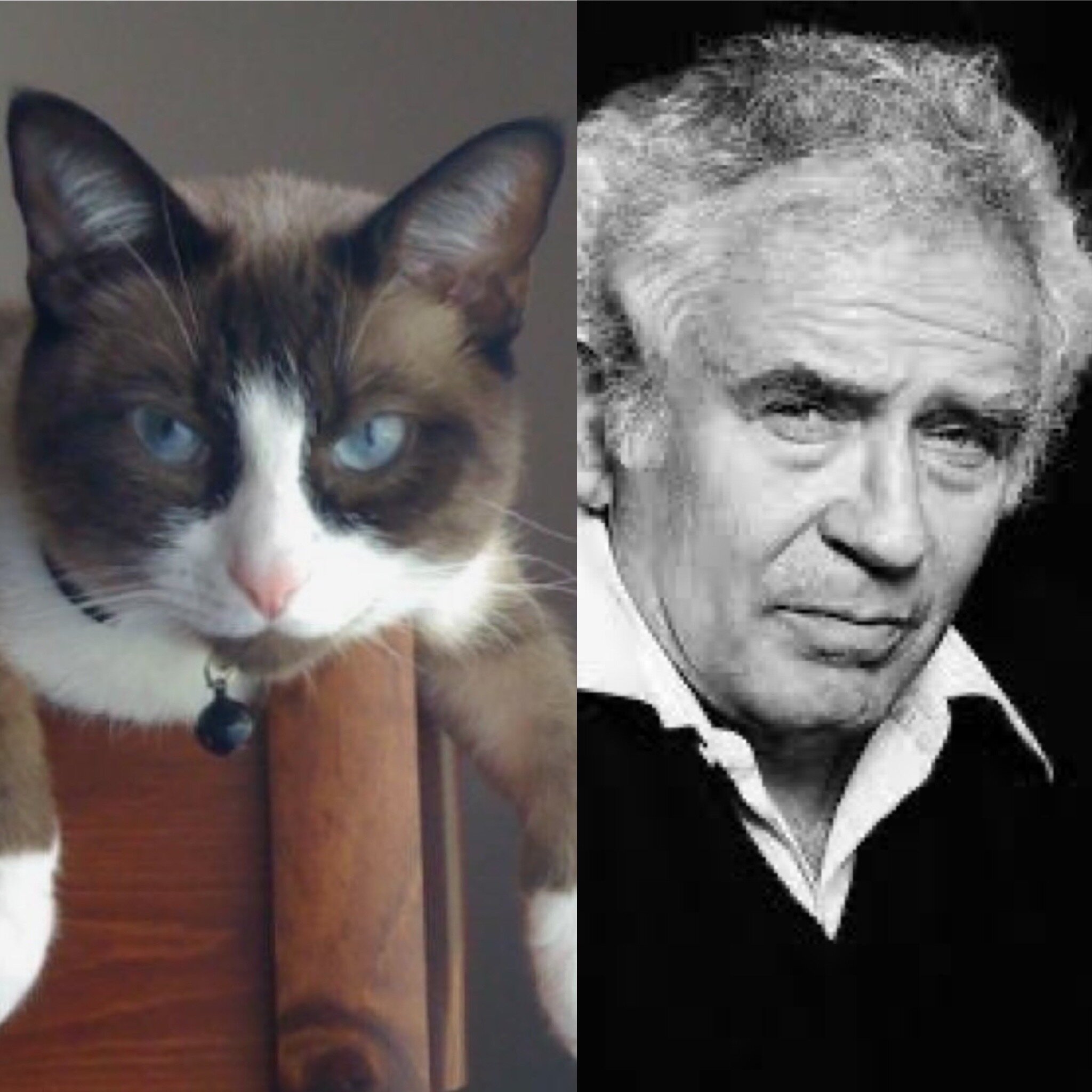








lack of translation
Kayan Tara is an Indian poet and author living in the United States. Kayan’s work touches on the struggles and contradictions of growing up in Mumbai, India, as well as its political and social landscape. During this turbulent time in the United States, Kayan has written about the realization that even in times of division we have more in common than apart.
Written by Kayan Tara
you reply in english
at 9 years old when
your grandmother
holds out shrivelled hands
to bless you in tunes of
an ancient religion
you cannot fully claim
at 13 years old
you notice skin
not white enough
not even dark brown
like your supposed
desi brothers and sisters
you dream in red,
white and blue
at 16 years old
wanting green eyes,
and long blonde hair
when you go home
at 19 years old
they tell you your
tongue does not bend
right to speak the phrases
of your ancestors
so at 22 years old
you lay among
peach sheets
with a white woman
terrified you reek
in layers of betrayal
Top Ten Taylor Swift Lyrics that Should Put Her in the Running for U.S. Poet Laureate
We over here at The Poetry Society of New York love Taylor Swift. I mean, who doesn’t cry when folklore comes on? So here we present to you, our dear reader, the top ten Taylor Swift Lyrics that could hypothetically(!) put her in the running for U.S. Poet Laureate. (We’re only half kidding.)
We over here at The Poetry Society of New York love Taylor Swift. I mean, who doesn’t cry when folklore comes on? So here we present to you, our dear reader, the top ten Taylor Swift Lyrics that could hypothetically(!) put her in the running for U.S. Poet Laureate. (We’re only half kidding.)
“Your Midas touch on the Chevy door/November flush and your flannel cure/‘This dorm was once a madhouse’/I made a joke, ‘Well, it’s made for me’.”
“But we might just get away with it/Religion’s in your lips/Even if it’s a false god/We’d still worship/We might just get away with it/The altar is my hips/Even if it’s a false god/We’d still worship this love.”
“The drought was the very worst/When the flowers that we’d grown together died of thirst/It was months and months of back and forth/You’re still all over me/Like a wine-stained dress I can’t wear anymore.”
“Take the words for what they are/A dwindling, mercurial high/A drug that only worked/The first few hundred times/And that’s the thing about illicit affairs/And clandestine meetings and stolen stares/They show their truth one single time/But they lie and they lie and they lie/A million little times.”
“Echoes of your name inside my mind/Halo hiding my obsession/I once was poison ivy, but now I’m your daisy.”
“It’s the kind of cold, fogs up windshield glass/But I felt it when I passed you/There’s an ache in you, put there by the ache in me.”
“Please picture me in the weeds/Before I learned civility/I used to scream ferociously/Any time I wanted.”
“Now I’m searching for signs in a haunted club/Our songs, our films, united we stand/Our country, guess it was a lawless land/Quiet my fears with the touch of your hand/Paper cut stings from our paper-thin plans/My time, my wine, my spirit, my trust.”
“Maybe we got lost in translation/Maybe I asked for too much/But maybe this thing was a masterpiece/’Til you tore it all up/Running scared, I was there, I remember it all too well/And you call me up again just to break me like a promise/So casually cruel in the name of being honest/I’m a crumpled up piece of paper lying here.”
“What must it be like to grow up that beautiful?/With your hair falling into place like dominoes/My mind turns your life into folklore/I can’t dare to dream about you anymore.”
Painted Flowers
Mollie Gordon (she/her/hers) is a queer writer, educator, and theatre-maker based in Brooklyn, NY. Her prose and poetry have been published by Multiplicity Magazine and Love & Squalor, and her plays have been produced by The Bechdel Group and Sarah Lawrence College. She uses her writing to freely explore gender and the natural world, while also analyzing and reimagining the classics. She will graduate next year with a B.A. from Sarah Lawrence.
Excerpted from Moments in Nature Chronicled by a Convalescing Brooklynite by Mollie Gordon
There have been two gardens (thus far) in my life. One is in Brooklyn only five minutes away from where I am now (in quarantine with my parents); it is my godmother Linda’s garden. Linda is an expressionist painter and a gifted gardener. I often wonder if those talents are linked somehow, if she learned to grow flowers by painting them first. I can neither paint nor garden, but sometimes in the summers I used to come over and tend to Linda’s garden while she, Ethan (my godfather), and Cora (my godsister) vacationed in Florida. This task terrified me; I worried that Linda would return home to find the only living flowers in her house to be those in her paintings.
Linda paints primarily still life pictures -- of the boardwalks at Coney Island, or her flowers (usually orchids), or her dead son. The last summer I tended the garden, Linda was growing only one orchid and it was kept apart from the rest of her plants, sequestered in a small clay pot in her dead son’s room. When Linda paints orchids she paints them leaning towards each other as if engaged in private conversation. They are distinctly feminine, with titles like “gossiping old maids” or “conferring ballerinas,” but Linda’s living orchid lives alone, a ghost in a ghostly room. About a week ago I investigated the symbolism of orchids (as I thought about her) -- they stand for both femininity/fertility and death. A haunting combination.
In Linda’s instructions she always asked that I watered the orchid first. I appreciated her specificity, I myself did not know where to begin. How do you garden when the garden isn’t yours? For both Derek Jarman and Mary Sarton, gardening was a desirable solitude, a personal Eden. They went to their gardens for peace from the pangs of heartbreak, the pressures of artmaking, their insidious demons. But when I walked the few blocks to Linda’s apartment (which she’d been renting temporarily for twenty years now), I never felt fully at ease. I spent several minutes just wrestling with the front door, then I would fill the watering can in the sink, the water reverberating against the peeling tin like the ringing of chimes. Then to the shadowy orchid, then to the cactus she kept for herself in her bedroom. The indigenous people that Linda rents her apartment from believed that cacti represented the unconditionality of a mother’s love (I think she is proof of this) and I am careful with the cactus.
After, I would leave the door unlocked and go outside to water the exterior plants, where Cora’s butchered Barbie dolls usurped the places of the more traditional garden gnome. To reach these elusive flowers (asters and irises, protected and exhibited by a fence like Juliet by her balcony) I had to maneuver the watering can through a gap in the fence and shake it aimlessly. The result looked like the sprinklers Linda’s son and I used to run through together in sweat-soaked bathing suits at Van Voorhees park down by the highway.
When I felt that I’d approximated the rain, I would go back inside and dump any remaining water in the sink. Then I would lock up and walk home. I never turned the lights off because I never turned them on. I felt a little like a burglar, and based on how long it took me to get the door to open and close, Linda’s neighbors probably thought I was one. Or maybe they just didn’t worry about it, knowing Linda. Her doors are open to everyone.
Hey, Linda? Don’t tell Aunt Julie this but your garden is my favorite. That other garden (Aunt Julie’s) is located in Washington D.C., and Julie is incredibly possessive of it. She does not share her gardening duties with anyone, therefore my job was not to water the plants but to chase the rabbits away. Julie and the rabbits had been at war ever since they had eaten through half of her cucumber plants, ruining a perfectly planned summer salad. Julie appointed me her general, renowned as I was for tearing up gardens rather than growing them, an upset to my feminine ancestors.
It does not escape me that only the women in my life have been particularly inclined to garden. I don’t know what this says about us. Is it because we as women have been conditioned to nurture, to tend, to preserve? Or is it that ever since Eve got us kicked out of the garden we’ve been fighting to get it back? Whatever the case, I do not (nor I never have) fit that mold of womanhood. I used to dig up grubs in the yard behind my preschool, and my mud-drenched dresses earned me infamy as a not very good little lady.
But maybe Linda just doesn’t see me that way (I can’t be sure). What I know is that she trusts me to water her orchid just enough, to help her bake sugar cookies that vanish as soon as they emerge from the oven, to keep an eye out for bats as we walk by the pier at sunset, to hand out the goodie bags at her son’s birthday parties and (now) to watch over her daughter. While Linda labors in the kitchen to produce the perfect butternut squash casserole, I lead Cora through endless games of hide-and-go-seek. The little girl is as wild as I was, but Linda doesn’t seem to mind. She is too busy cooking with the fruits of her garden, striving to squeeze as much life out of those plants as she can.
Linda invited Ellis over the first time she met them. We stopped outside her door on a tour of my neighborhood, the exertion making me lean forward on my crutches like the drooping head of her orchid. At the first ring of the bell the door swung wide open and she said, “Come in, come in!” face flushed with excitement at a chance to play the host. Ten minutes in and she’d already invited Ellis to dinner, featuring her homemade mushroom moussaka. Her shoulders sagged a little when I admitted that we already had plans for the evening, but we agreed on a rain check. I am still waiting for the day (post-pandemic) when I can make good on that promise, when I can usher my beloved into the warmth of your garden and your home.
Clickbait Review: Joshua Beckman's "Animal Days" + The Thud Thud Thud Resounding
How fragile is the word “human”? In Joshua Beckman’s new collection, Animal Days , it appears more vulnerable than we would like to admit. Animal Days, published this year by Wave Books, breaks down the syntax through which we compose ourselves as creatures set apart. Branching distinctions, recited by habit, between subject and object, human and inhuman, are all scraped and shorn away from the text, allowing us to reach into the darkness beneath words and encounter a strangeness buried deep in our bodies. Porous, silent, damp—a movement barely sensed: the parts of life from which we’d normally recoil enter our awareness, like the pulse rushing in our wrist—a foreign feeling, always present, but suddenly recognized. Winding along the roots of our grammar like a speckled rot, Beckman’s poems moisten and decay our assumptions, revealing what we are when we are no longer ourselves.
Joshua Beckman is a poet, translator and editor. He is the author of a number of books, most recently Animal Days (Wave Books, 2021).
“Lost in the flux of sensation, we discover, in pain’s heat, that the body is more than we thought, more than we can say.”
Written by Nate Rosenfield
How fragile is the word “human”? In Joshua Beckman’s new collection, Animal Days , it appears more vulnerable than we would like to admit. Animal Days, published this year by Wave Books, breaks down the syntax through which we compose ourselves as creatures set apart. Branching distinctions, recited by habit, between subject and object, human and inhuman, are all scraped and shorn away from the text, allowing us to reach into the darkness beneath words and encounter a strangeness buried deep in our bodies. Porous, silent, damp—a movement barely sensed: the parts of life from which we’d normally recoil enter our awareness, like the pulse rushing in our wrist—a foreign feeling, always present, but suddenly recognized. Winding along the roots of our grammar like a speckled rot, Beckman’s poems moisten and decay our assumptions, revealing what we are when we are no longer ourselves.
“It Seemed Too Much,” the first of the collection’s five parts, depicts the language we struggle to form when we attempt to describe our pain. Broken lines stumble along the page like the phrases we find emerging from our mouths when a doctor asks us what seems to be the problem. A pulling, a spasming, something tight—we point and grope like children for the simplest words, as pain radiates awareness through parts of ourselves we normally can’t sense (a tendon slipping around bone or an aching muscle torn and taut). The body itself feels suddenly unfamiliar, as if it were something separate from us, outside of our control. From the first pages of Animal Days, we’re gripped by the spasm of the unknown movements within us: “it seemed / too much / —the / clacking + / griping, the going / back + forth / it’s not him / nor is it anything / else—”... “the pursing / and bursting / of cells / blood / in the skin / in the face / blood exploding / inside us / like that” (3) … “curt stones / stomach pain / body pain—cell / + task” (4). The subject of Beckman’s lines has vanished. Verbs are nouns. All there is, and all we are, is movement—a sensing, a coursing, a straining. A terror rushes through these lines infused simultaneously with a strange sense of release. Lost in the flux of sensation, we discover, in pain’s heat, that the body is more than we thought, more than we can say.
Possibilities emerge as Beckman’s syntax blurs the distinction between ourselves and the movements within us. If a tremor in the muscle is in fact our life, then what of the breeze grazing against the skin? In Animal Days, the line we draw between ourselves and the world begins to ripple, as our awareness grows of the movements within and beyond our bodies, like in the following lines: “Dog / children / splashing the air / in their mouths / spitting grotesque sounds” (5). This image of fitful play transforms language itself into merely a movement of particles in the mouth. The feeling of the air as it carries the voice becomes our way of sensing the world, rather than knowing it; words are just part of what flies out of us with the spittle. Beckman makes our relationship with language physical to allow us to see the cries of children and dogs mingle in the breeze. This is no metaphoric fantasy of a communion with nature. It’s an encounter with the boundary where the inhuman, the vulgar, the “grotesque,” rub against us. We resist crossing this boundary by instinct, recoiling in disgust without a thought. Dirt is dirty. Spit is filth. What more is there to say? Animal Days reveals how our humanity is fabricated through these instinctive forms of avoidance. It shows us that flowing beyond the boundaries of the human there is a power we cannot control or resist, which must simply be ignored; to do otherwise would mean to destroy the illusions that preserve us, to go against our nature.
Beckman allows inhuman perceptions to seize hold of the innermost parts of his being—his body, and even the poetry he has given his life to produce. He compares his desire for song to a bird’s, and allows this metaphoric merging to erode the distance between himself and the creature he observes: “The bird’s whoo / on its pallet / of rock / ended / I too am singing / awkwardly to myself / is it fear? / they are always saying it is fear / but I suspect a kind of / dumbness lapping and growling / insensitively within me / caused it first myself / then now responding to / its empty echo / I carry on with a thud / a thud thud / a thud thud thud / a thud thud thud / a thud thud thud” (85-86). As the image unfolds, beauty is washed away from speech. A name or reason for song has been pulled into the current. Purpose becomes urge, word becomes sound, as the rushing movement of life strips away the constant swarm of thoughts that protect our humanity from the sheer, irreducible flow of now. Human song becomes another sound in the air, a “thud thud thud” resounding to resound, like a heart, pulsing to pulse. When we allow ourselves to see the world with inhuman eyes, our justifications crumble like mud as it dries, and the shape of our lives begins to change: “A radiant glimmer / I once saw in eye / I once felt in tongue / how stupid wet and soft / they’re seeming now / candid is the flesh / and strange the jaw / its masticating of everything / how silly its vigilance seems / as the beetle crossses / back and forth” (91).
After Animal Days peels back the boundaries that define the human, it probes beneath them, searching painfully for a cause. The second part of the collection, “Little Prickly Coming of Storm” opens with an elegantly drawn image of an egret feeding: “as it pokes / into the fleshy / fish with its / beak and has it / speared there / then / throws back / its head / so the creature / goes perfectly / vertically up / and in a straight line / comes all the way / back down / right into / its mouth” (11-12). A group of hikers walks “through the bushes / wearing hats'' gathering to watch this strange sight, when a thought passes over the crowd: “but just consider / the living creature / who does something / like that / the terrible / crushing of bones / and eating” (12). Beckman reveals a latent instinct beneath this commonplace reaction by comparing the egret’s feasting to a childhood memory of a fishing trip, in which the poet suddenly finds himself to be the one removing a fish from water and mangling its flesh: “I, myself / earliest / and first / displaces into a / satchel-shaped / silhouette / or two fish / bumping chest— / and everyone thought, / smiling / Second / same thing / and so on / weightless / obliviation / of it never / ending” (13). The subject “I” is cut away from the verb “displaces” by its improper conjugation. An unseen “he” is falsely implied, who we are forced to imagine carrying out the act (for “I” could never do such a thing). The grammatical incoherence of the lines bears the mark of an experience torn violently away from memory through denial. Even the verb choice obscures the true relationship between the subject and the real action taking place. What is ‘displaced’ here and what does it mean to ‘displace’ it? The verb itself, muffled and squirming, silently prods at what is truly going on. These ‘errors’ are meant to keep the killing quiet, tossed quickly out of sight like the body of the fish thrown into the “satchel-shaped silhouette.” The only clear image is the “bumping chest”—movement which seems to have been too shocking to forget—and the presence of the “smiling” others, whose willful obviousness seems to enforce the all too human need to abandon to “weightless obliviation” the thought wedged in this intimate act of crushing and chewing and swallowing. A kernel of it stabs at us constantly, despite our endless attempts to ignore it. In this image, Beckman illustrates that our humanity is formed through our endless struggle to resist an essential foundation of all life: that we are sustained by the deaths of others, and that to live means to partake in the same gnawing movement that will destroy us. Animal Days shows us that our elaborate linguistic acts of self preservation will always fail to protect us from this inevitable truth. Like a hard seed-casing meant to break into the soil, our human life might seem to be the world that holds us, but it too will someday crack and fall away.
Joshua Beckman has crafted a poetics to uproot deceptions deeply embedded in our concept of the human. Covid-19 and the global threat of climate change have forced us to encounter how dangerous these deceptions have become. The integrity of the self and the body, the distinction between the human and the inhuman, and the separation of life and death have been pressed to a breaking point. Animal Days shows us what it’s like when these assumptions snap, and new forms of understanding are allowed to take root. All of us are now involved in the task of nurturing cultures capable of sustaining life on earth. The most basic parts of daily experience, from walking past a stranger on the street to ordering a meal at a restaurant, now require us to reimagine our connections to the life forms circulating all around us. It’s an overwhelming task often fraught with confusion and paranoia, and it’s difficult for the poets guiding our language through such a crisis to avoid the rationalizations most of us can’t help but indulge in despair. Irony, hyperbole, fantasy and nihilism are not hard to come by when browsing the shelves for new collections.
Joshua Beckman’s Animal Days provides a powerful example of how poetry can help us re-envision our relationship to the world amid disruption and catastrophe. Rather than elaborating on our inability to even recognize the world beyond the human, Beckman plunges into the darkness within our bodies to rediscover the intimacy of the life we’ve alienated. Animal Days challenges the notion that language is what separates humanity from other forms of life. By spawning a new kind of grammatical tissue, Beckman’s collection scabs over and rejoins the vital growth we’ve torn away from ourselves. With all the pus and pain and swelling of a creature in the process of its remaking, this book will heal you if you give it time to grow.

